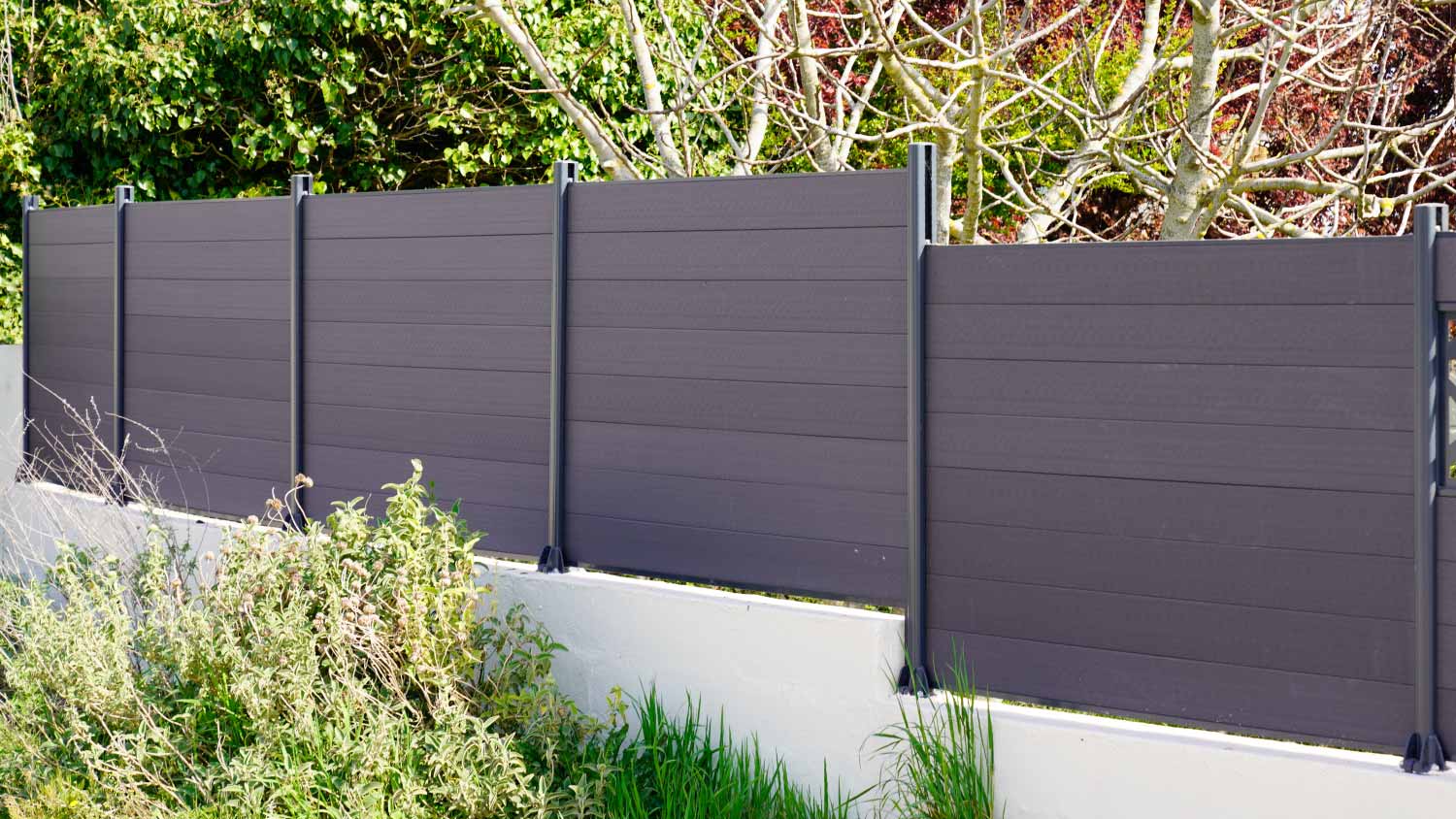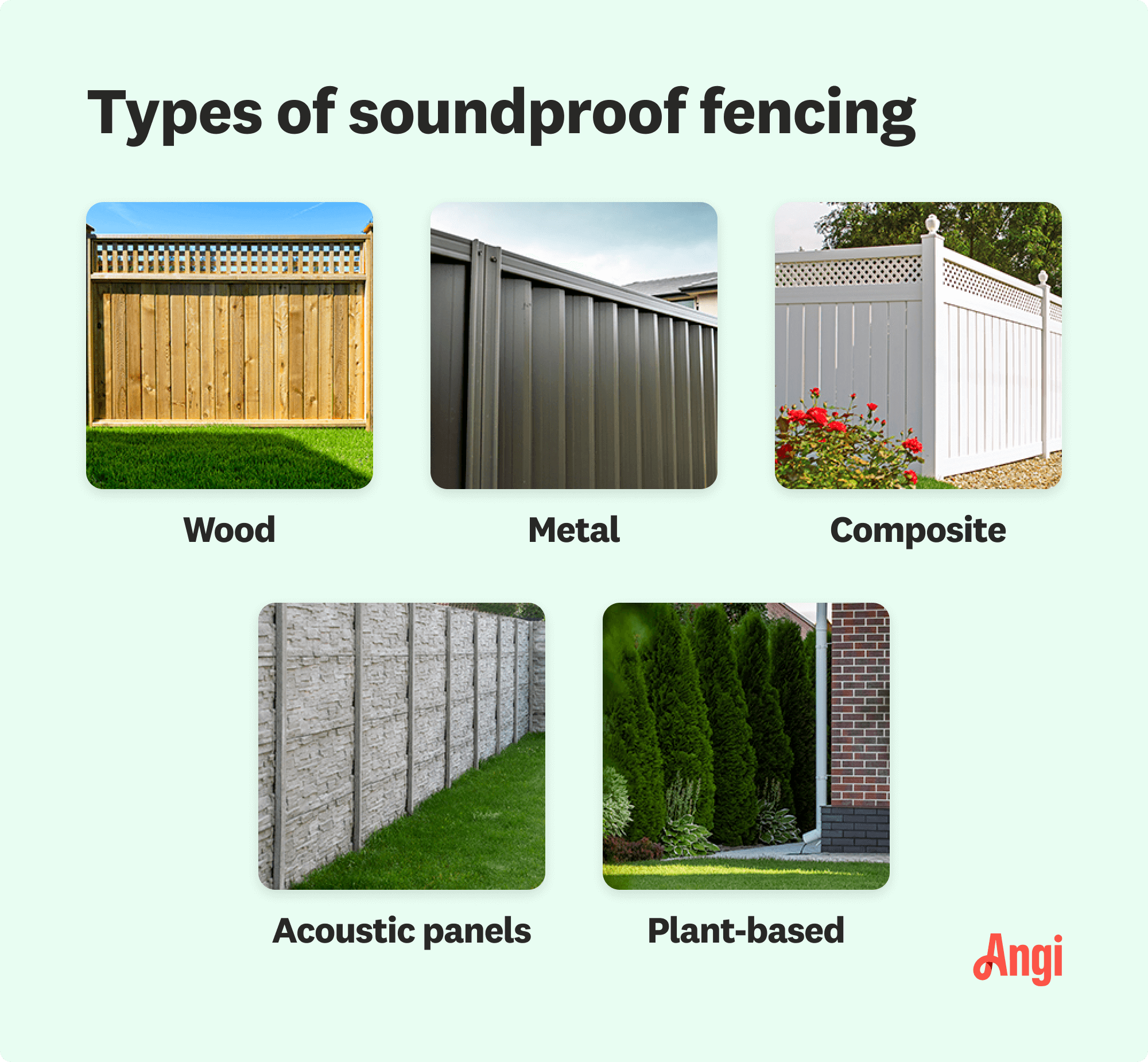
Pool fence costs depend on the type of fencing and the size of your pool. This guide will help you figure out the true cost of pool fence installation.
Privacy and peace in one fell swoop


A soundproof fence is a great way to increase privacy and improve your quality of life.
Average fence installation costs range from $1,770 to $4,560, depending on the material.
Privacy fences are often made of wood, metal, or plant-based materials.
Soundproof fencing is an excellent solution for creating a quieter and more peaceful home environment. Not only does soundproof fencing decrease noise from traffic and neighbors, but it also offers a great deal of privacy. This comprehensive guide will delve into soundproof fencing, including how it works and your installation options.
Soundproof fencing, also known as noise barrier fencing or acoustic fencing, is designed to reduce and control the transmission of sound. Soundproof fencing acts as a barrier between the source of the noise—think a barking dog or a rumbling garbage truck—and the area you want to keep quiet. The result? Less noise and more at-home serenity.

The effectiveness of soundproof fencing lies in its ability to absorb, reflect, or block sound waves. Different materials and construction methods are employed to achieve this. Common materials include dense wood, metal, composite materials, and even specialized acoustic panels. The design of the fence, such as its height and thickness, also plays a crucial role in determining its soundproofing capabilities.
There are a few different types of fence materials to choose from when it comes to soundproof fencing. Wood, metal, and composite materials are just a few options.

Wooden fences are a popular choice for soundproofing due to their natural density and ability to absorb sound. Opting for thick, solid wooden panels can significantly reduce noise from traffic or neighbors. The height of the fence is also an important factor—taller fences provide better sound-blocking capabilities.
Metal soundproof fencing, typically made of steel or aluminum, is another effective option. These materials are known for their durability and ability to reflect sound waves. Combined with a solid construction, metal fences can serve as a formidable barrier against unwanted noise. As with wooden fences, taller metal fences make for more sound protection.
Composite soundproof fencing combines various materials to maximize sound reduction. This may include a combination of wood, metal, and other synthetic materials designed to provide optimal sound absorption and reflection.
You can opt for acoustic panels for a more modern, specialized soundproof fencing solution. These panels are designed specifically for sound absorption and can be strategically placed to enhance the overall effectiveness of the fence.
Plant-based soundproof fencing strategically uses earthy elements like shrubs and trees to create a natural barrier against noise. While not as effective as traditional fencing, dense vegetation can absorb and deflect sound waves to some extent. This option also adds a touch of natural beauty to your surroundings.
Before installing soundproof fencing, it's crucial to check local regulations and zoning laws. Some communities may have restrictions on fence height and materials. Working with a fencing pro can ensure you cover all your bases and get the job done to your liking. If you’re wondering who to hire to build a fence that has soundproofing capabilities, it’s best to call a professional fence company near you. Working with a fencing pro can help you get the sort of noise-canceling quality you want while working within your budget.
Soundproof fence installation costs between $1,770 and $4,560, depending on material, size, style, and other factors. For example, a fence made of wood costs about $3,150, though it varies based on the type of wood you choose. Installation expenses may also vary based on your location.
He installed a new fence for us the first time. Best price of three estimates and he did a great job. Great communication. Just recently, we needed a different fence to be repaired. He did great work, some carpentry involved and he charged us a very reasonable price. We will always use...
Loudoun Deck and Fence was my last of 4 estimates I asked for in order to get a deck built. We also asked them for a fence quote and decided on another contractor for that piece. The experience was essentially flawless. From initial consultation, follow up and design as well as...
From average costs to expert advice, get all the answers you need to get your job done.

Pool fence costs depend on the type of fencing and the size of your pool. This guide will help you figure out the true cost of pool fence installation.

The cost of a barbed wire fence depends mainly on how large your property is. If you have a longer fence, you can expect to pay a few thousand dollars.

The cost to install a picket fence varies by height, material, labor, and more. Read this guide to help you budget for a picket fence installation.

A fence is a great way to add privacy and style to your yard. Compare two common options, horizontal vs. vertical fences, to see which is right for you.

Looking to add a fence for more privacy and safety? Learn how to install a vinyl fence over a long weekend with this step-by-step guide.

If you’re considering building a beautiful new wood fence at your home, you’re likely asking yourself: how long does a wood fence last? We’ve got you covered.